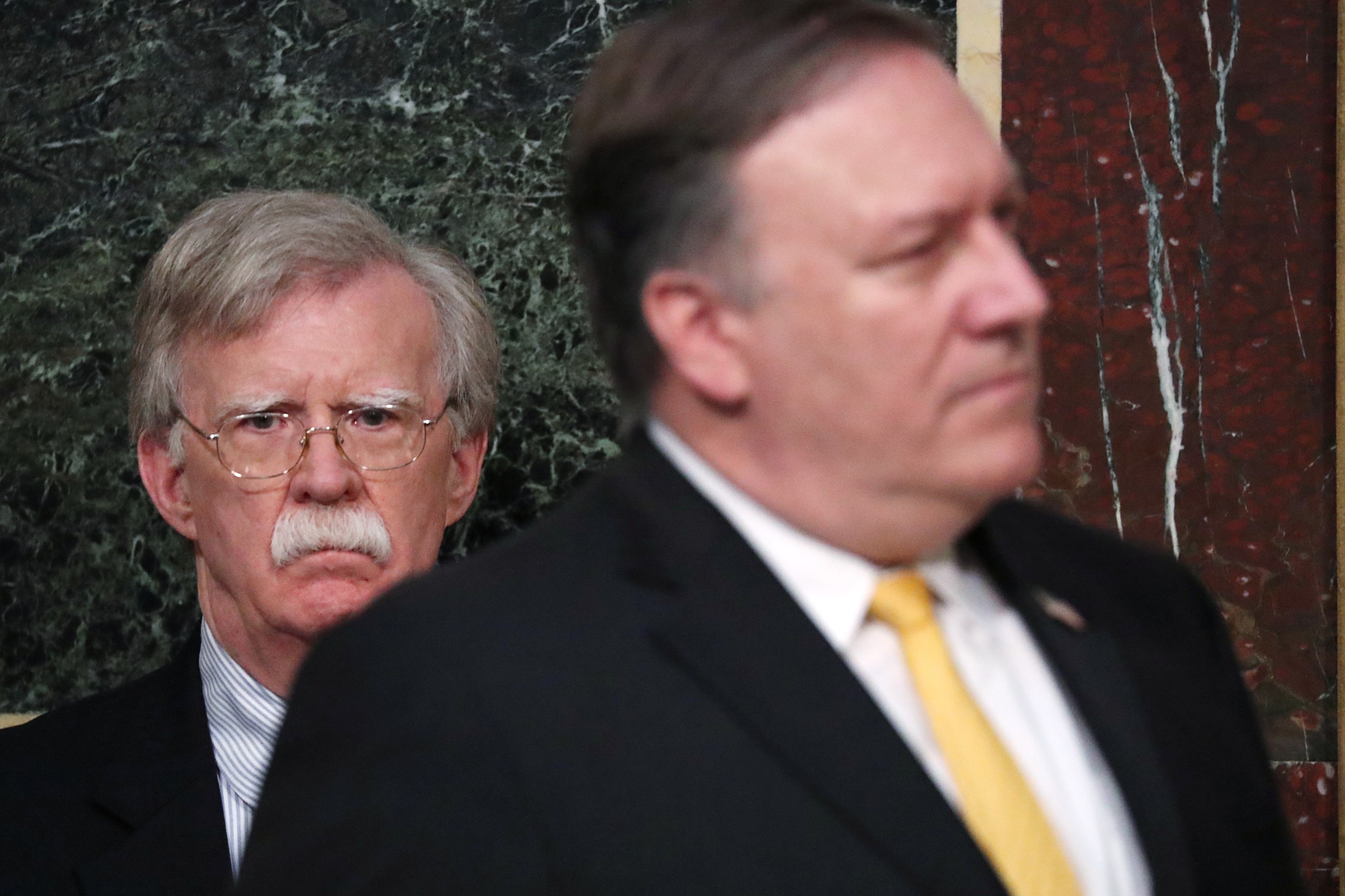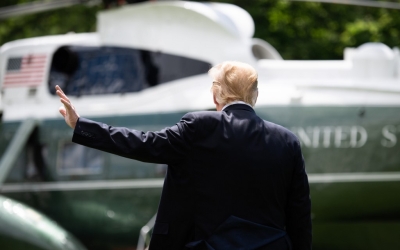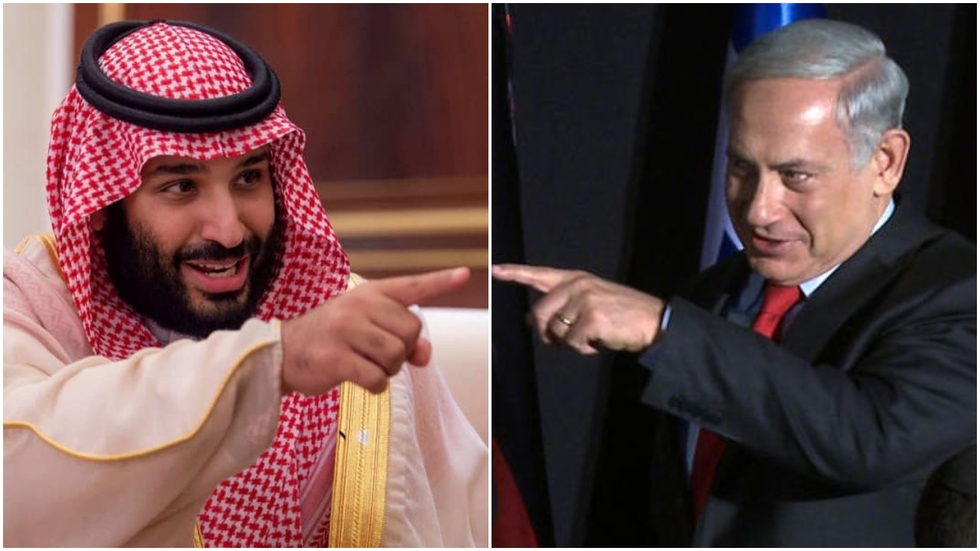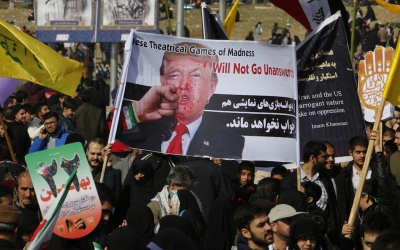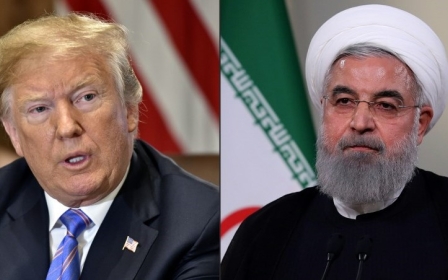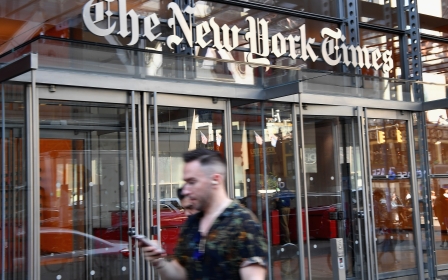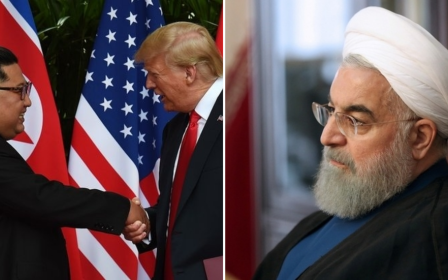If Trump really wants to talk to Iran, here's what he should do
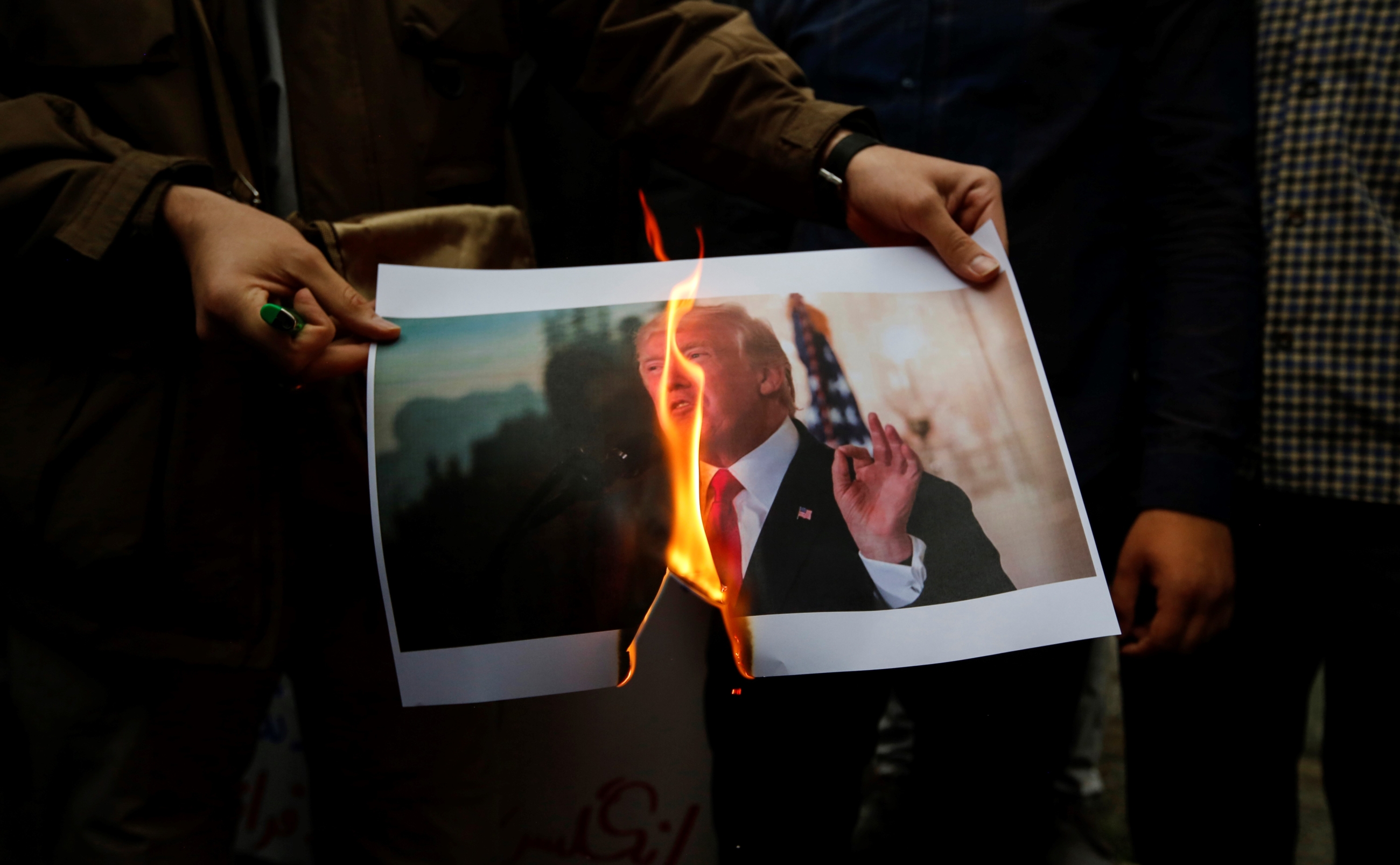
Amid the confusing signals US President Donald Trump has been sending in the past few weeks, he has managed to suggest to the world that he doesn't have a strategy on Iran, that he isn't on the same page as his hawkish National Security Advisor John Bolton, that he doesn't want war and - perhaps most importantly - that he wants talks but doesn't know how to get the Iranians to pick up the phone.
In short, he's doing everything wrong.
A serious strategy
Trump is making it next to impossible for the Iranians to agree to talks, he's increasing the risk of war, and he is undermining his own credibility in the process.
If Trump truly wants negotiations with Tehran, he needs a serious strategy that creates an atmosphere conducive to diplomacy
On top of that, he is now sending more troops to the region and selling more arms to the Saudis - steps that intensify Tehran's perception of threat and increase its demand for a deterrence against these threats rather than its conviction that dialogue with Trump can serve a useful purpose.
New MEE newsletter: Jerusalem Dispatch
Sign up to get the latest insights and analysis on Israel-Palestine, alongside Turkey Unpacked and other MEE newsletters
If he truly wants negotiations with Tehran, he needs a serious strategy that creates an atmosphere conducive to diplomacy.
Five steps
Here are five steps Trump should take to prepare the ground for a serious diplomatic strategy.
First, if Trump wants to avoid war and engages in diplomacy, he must fire Bolton and Secretary of State Mike Pompeo.
Though Pompeo has tried to distance himself from Bolton of late, the reality is that neither shares Trump's mooted desire for diplomacy, and both have deliberately undermined the limited diplomacy Trump has actually engaged in.
While much focus has been on Bolton's nefarious role in fabricating, manipulating and exaggerating intelligence to drive matters towards war with Iran, it should not be forgotten that Pompeo has played an equally nefarious, albeit less flamboyant, role in North Korea.
In fact, the North Koreans refuse any further engagement until Pompeo is removed.
Tehran knows all of this. They have spoken to the North Koreans, and Pyongyang's message has been clear: Trump genuinely desires a deal, but whatever he promises, Bolton and Pompeo walk back and undercut.
They are not serving their president, they are serving their own agenda - and it is not clear who calls the shots.
Trump may think he has an effective good cop/bad cop routine going with Bolton and Pompeo. But for such a routine to work, the other party must be convinced that the good cop can control the bad cop. Thus far, neither Pyongyang nor Tehran have that confidence in Trump.
Respect the deal
Trump is under the illusion that he can wage economic warfare on Iran without risking military conflict.
He thinks that he can drive the Iranian economy into the ground without the Iranians counter-escalating, which in turn could bring the two sides closer to military blows.
That is exactly what has happened in the past two weeks - and there is no reason to believe the two sides can remain in this space without matters eventually turning towards war.
If Trump desires diplomacy, he must de-escalate - both militarily and economically. His hatred of former president Barack Obama will not allow him to return to the Joint Comprehensive Plan of Action (also known as the Iran deal, or nuclear deal), but he can return to respecting its terms - and then negotiate a deal that could beyond what it achieved.
If Trump calculates that the economic pressure grants him leverage against Iran for any such negotiation, Tehran can reach the same conclusion and begin escalating its nuclear activities to build counter-leverage.
Eventually, that will bring the two countries to the brink of war, which is exactly what Trump claims he'd like to avoid.
Drop all preconditions
Preconditions beget preconditions. The more of them you have, the more the window for diplomacy will close, which is precisely why preconditions have so often been put forth by those who don't want diplomacy to take place.
For years, the George W Bush administration and the Israeli government insisted that diplomacy with Iran could only take place once Iran ceased all enrichment activity. Neither Israel nor the Bush team wanted diplomacy - and they knew quite well that their precondition would eliminate any chance of the Iranians agreeing to talks.
Pompeo included that diplomacy-killing precondition in his own list of 12 demands Iran would have to meet before talks could take place. Trump should ask himself why.
Respect can go a long way
Iran is not North Korea. Unlike Kim Jong-un, no Iranian politician is all-powerful, and none of its leaders can ignore the politics of their country. Among other things, this means that agreeing to talks with Trump will be immensely risky for any Iranian political figure.
But it will be guaranteed political suicide if Trump regularly insults and disrespects the country, both through his rhetoric and his policies.
Agreeing to talks with Trump will be immensely risky for any Iranian political figure
I know Trump is loath to find wisdom in Obama's diplomacy with Iran. But if he sets aside his dislike for his predecessor - if only for a moment - he could learn a thing or two from the only American president that has successfully negotiated a multilateral agreement with Iran.
Obama recognised that he needed to create an atmosphere conducive to diplomacy if he was serious about negotiating with Tehran. So he did a fundamental review of America's Iran policy - including US rhetoric on the Islamic Republic. He quickly realised that the expression "carrots and sticks," which carries no negative connotation in English and simply means to use incentives and disincentives in a negotiation, translates very badly into Persian.
Essentially, it signalled to Iran that the US viewed it as a donkey that Washington either would punish or lure into submission. Obama's State Department immediately eliminated the term from its talking points and no Obama official ever used the expression again in the context of Iran.
It was a change that cost the US nothing but gained it a lot in communicating to Tehran its sincerity about diplomacy.
Stop listening to Israel, the UAE and Saudi
Israeli Prime Minister Benjamin Netanyahu brags that he convinced Trump to leave the Iran nuclear deal. The UAE's de facto ruler boasted that his small country got former secretary of state Rex Tillerson fired.
Saudi Arabia's saw-wielding crown prince gloats that he has the president's son-in-law Jared Kushner in his pocket.
What do they all have in common?
Well, according to Netanyahu himself, they are all coming together due to their "common interest in war" with Iran.
As Robert Gates, a former US secretary of defence, said to his French counterpart, the Saudis "want to fight the Iranians to the last American".
As long as Trump allows these so-called allies of the United States to drive US policy towards Iran, war will always be more likely than diplomacy. They will box Trump into corners where he will have no option but to take military action.
The bottom line is this: Trump claims he wants diplomacy. If that is true, he should act accordingly.
The views expressed in this article belong to the author and do not necessarily reflect the editorial policy of Middle East Eye.
Middle East Eye delivers independent and unrivalled coverage and analysis of the Middle East, North Africa and beyond. To learn more about republishing this content and the associated fees, please fill out this form. More about MEE can be found here.



